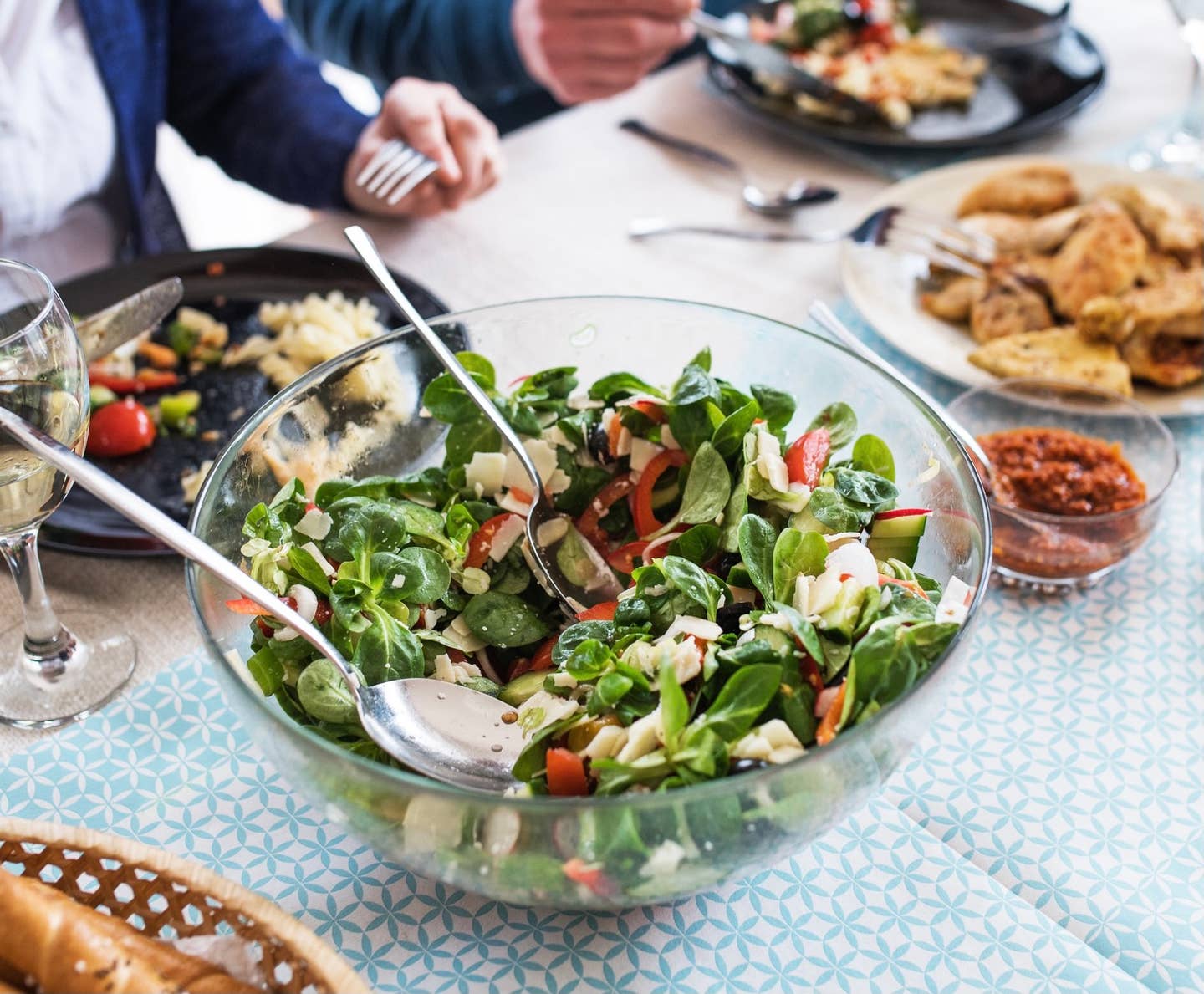
What to Eat to Lower High Blood Pressure Naturally, According to an RD
Did you know that nearly half of adults in the United States are living with high blood pressure and only one out of four has it under control?
We know that medication can help control their blood pressure–30 million Americans have a prescription for a blood pressure medication. Diet is also a tool that we can use to control our blood pressure. The question is, what should we eat and what should we limit?
Well, this is the time for you to pull up a chair, sit back, relax and take the pressure off. We’re about to break down w Take a deep (blood pressure lowering) breath and let’s dive into it.
What is High Blood Pressure?
Simply put, blood pressure is a measure of how hard the blood pushes against the walls of our arteries as it flows from our heart to other parts of our body. Fluctuations in blood pressure throughout the day are normal, however, if your blood pressure is constantly elevated, you have high blood pressure.
High blood pressure can cause damage to blood vessels in the heart and kidneys over time, which can lead to heart attack, stroke, and other health concerns. The kicker is that we can’t feel high blood pressure or the damage that it’s causing. Therefore, it’s known as the silent killer.
When your blood pressure is measured, you will see two numbers given to you as a ratio. The top number is your systolic blood pressure, which is how hard the blood pushed when the heart is pumping. The bottom number is your diastolic blood pressure, which is the number that shows how hard your blood pushes between heartbeats.
Another name for high blood pressure is hypertension. Hypertension is defined as having a blood pressure at 140/90 or higher.
What Causes High Blood Pressure?
We don’t know the exact cause of high blood pressure, but we do know what can contribute to high blood pressure. They include:
- Overweight status
- Drinking an excessive amount of alcohol
- Having a family history of high blood pressure
- Age
- Inactivity
- Insulin resistance
- And finally – diet
Diet Factors That Can Raise Blood Pressure
High Sodium Foods
The relationship between high sodium consumption and the risk of hypertension is well documented. Current recommendations are to keep dietary sodium below 2300 mg/day. Did you know that more than 40 percent of the sodium we eat each day comes from only 10 foods? According to the CDC, the top sources of sodium in our diet include bread and rolls, pizza, sandwiches, cold cut meats, soups, burritos/tacos, crackers, chicken, cheese, and eggs. None of these are whole, plant-based foods!
High Glycemic Index Foods
Glycemic index is a tool that measures how much a specific food increases your blood sugar levels. The higher the glycemic index of a food, the greater it raises blood sugar.
It is well documented that those who consume high glycemic index diets tend to have higher blood pressure. When the body produces too much insulin, to combat a higher carbohydrate and higher glycemic-index diet, it causes blood pressure to increase.
Diet Factors That Can Lower Blood Pressure
High Potassium Foods
High amounts of potassium will help our body excrete excess sodium. Studies have suggested that diets rich in potassium may actually be more effective than reducing sodium in our diet to prevent hypertension. We need 2600 to 3400 mg of potassium daily and most people don’t get that amount.
High Fiber Foods
The association between high fiber diets and lower risk of hypertension has been reported in multiple observational studies. The protective effect of fiber on blood pressure has been linked to an increase in insulin sensitivity – a reduction in insulin resistance – meaning that the body isn’t working as hard for cells to get fuel from sugar.
Magnesium-Rich Foods and Nuts
Studies have shown the largest decreased in risk for hypertension was observed in people who had diets rich in magnesium and nuts. Magnesium may help reduce blood pressure by increasing the production of nitric oxide, which is a signaling molecule that helps relax blood vessels. We need around 400 mg of magnesium daily.
Calcium-Rich Foods
Several studies have shown that increased calcium intake lowers blood pressure, even in people who have blood pressure within the normal range. Calcium intake may help regulate blood pressure by impacting the muscle cells involved in vasoconstriction in the blood vessels. We need about 1000 mg of calcium daily.
The Best Foods to Eat to Lower Blood Pressure
Let me summarize the above recommendation and go over foods that you should be adding to your weekly meal plan, to lower blood pressure:
- Low Glycemic-index Whole Grains: Oats (Steel Cut), Barley, Bulgur, Mung Bean Noodles, Quinoa and Popcorn
- Nuts without added salt such as Walnuts, Almonds, Cashews, Pecans
- Potassium-Rich Fruits: Dates, Bananas, Peaches, Oranges, Kiwi, and Prunes
- Potassium-Rich Veggies: Sweet Potatoes, Tomatoes, Beets, Swiss Chard, Avocado, Spinach, and Cabbage
- Calcium-Rich Plant-Based Foods: White Beans, Cooked Spinach, Fortified Plant-Based Milk, Tofu and Chia See
More From The Beet






